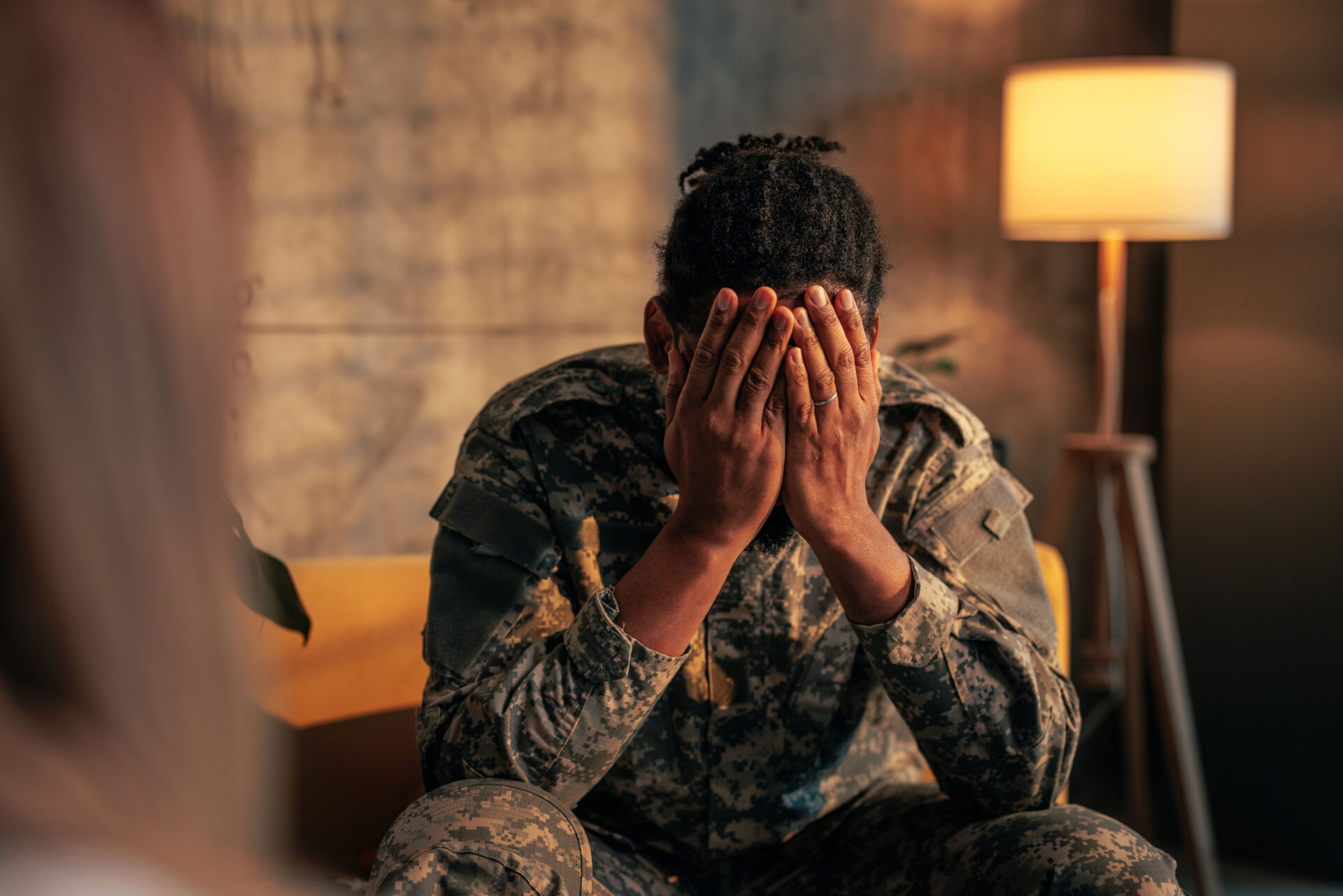Exploring Trauma: Its Types, Symptoms, and Treatments

What is Trauma?
Trauma is a deeply distressing or disturbing experience that overwhelms an individual’s ability to cope. It can have lasting effects on mental, emotional, and physical well-being, often leading to a range of symptoms and difficulties in daily life.
Trauma – and the different types of trauma – can result from a single event or a series of events that are perceived as harmful, dangerous, or life-threatening. These experiences can have profound effects on the brain, emotions, and behavior, shaping how individuals perceive themselves and the world around them.
Trauma’s Symptoms
Symptoms of trauma can vary widely and can manifest in different ways. However, some common symptoms of trauma include:
- Intrusive Thoughts: Distressing memories, flashbacks, or nightmares about the traumatic event that intrude into daily life.
- Avoidance: Avoiding reminders of traumatic events, such as places, people, or activities that bring back memories of the trauma.
- Negative Changes in Thinking and Mood: Persistent negative beliefs about oneself or the world, distorted feelings of guilt or blame, decreased interest in activities, feeling detached from others, and difficulty experiencing positive emotions.
- Arousal and Reactivity: Hypervigilance, irritability, outbursts of anger, difficulty concentrating, exaggerated startle response, and difficulty sleeping.
- Cognitive and Emotional Symptoms: Confusion, disorientation, memory lapses, difficulty making decisions, and emotional numbing.
- Physical Symptoms: Physical manifestations of stress, such as headaches, stomachaches, muscle tension, and fatigue.
Not everyone will experience all these symptoms. Symptoms can also vary in severity, duration, and the exact symptoms exhibited will vary from person to person. If you or someone you know is experiencing these symptoms following a traumatic event, it may be helpful to seek support from a mental health professional for an evaluation and appropriate care.
What Causes Trauma?
Trauma can arise from various sources, including but not limited to:
- Natural Disasters: Such as earthquakes, hurricanes, floods, and wildfires can lead to loss of life, property, and a sense of safety.
- Accidents: Involving serious injury, such as car accidents, falls, or industrial accidents, can be traumatic.
- Violence: Including physical or sexual assault, domestic violence, or witnessing violence.
- War: Experiencing combat or living in war zones can lead to trauma.
- Abuse: Emotional, physical, or sexual abuse, particularly in childhood, can have lasting traumatic effects.
- Loss: The death of a loved one, especially when sudden or unexpected, can be traumatic.
- Medical Trauma: Involving serious illness, medical procedures, or a life-threatening diagnosis.
- Other Stressful Events: Such as divorce, job loss, or financial problems can also lead to trauma, especially when they occur repeatedly or are particularly severe.
Diagnosing Trauma
Trauma is typically diagnosed by mental health professionals, such as psychologists or psychiatrists. Diagnosis may involve a thorough assessment of symptoms, a review of the individual’s personal and medical history, and discussions about the traumatic event(s) experienced.
To be diagnosed with trauma, these symptoms must be severe enough to cause significant distress or impairment in daily functioning.
What’s the Difference between Emotional and Psychological Trauma?
Emotional and psychological trauma are related concepts, but there are some differences between them.
Emotional trauma refers to a psychological response to an event or experience that is deeply distressing or disturbing. This type of trauma can result from a single event, such as a car accident or a natural disaster, or from ongoing stress, such as living in a war zone or experiencing childhood neglect. Emotional trauma can lead to feelings of shock, denial, disbelief, and emotional numbness.
Psychological trauma, on the other hand, refers to the lasting damage that results from experiencing a deeply distressing or disturbing event or series of events. This type of trauma can affect a person’s mental and emotional well-being, leading to symptoms such as anxiety, depression, flashbacks, and nightmares. Psychological trauma can be caused by a wide range of events, including physical or sexual abuse, domestic violence, or witnessing a traumatic event.
In summary, emotional trauma refers to the immediate psychological response to a traumatic event, while psychological trauma refers to the lasting effects of that event on a person’s mental and emotional health.
Trauma vs. PTSD
Trauma and Post-Traumatic Stress Disorder (PTSD) are related concepts but differ in their scope and impact. Trauma refers to the emotional response someone has to an extremely negative event, while PTSD is a specific set of reactions that can develop in people who have experienced a traumatic event.
Trauma can be a one-time event, such as a car accident, or a series of events, such as ongoing abuse. It can lead to a range of emotional and physical symptoms, including shock, denial, anger, anxiety, and flashbacks. Not everyone who experiences trauma will develop PTSD.
PTSD, on the other hand, is a mental health condition that can develop after experiencing or witnessing a traumatic event. It is characterized by symptoms such as intrusive thoughts or memories of the event, avoidance of reminders of the trauma, negative changes in mood or thinking, and heightened arousal or reactivity. These symptoms can significantly impact a person’s daily life and functioning.
Trauma is the emotional response to a negative event, while PTSD is a specific mental health condition that can develop after experiencing trauma. While not everyone who experiences trauma will develop PTSD, those who do may benefit from professional treatment and support to manage their symptoms and improve their quality of life.
Trauma’s Impact on Memory and Cognition
Experiencing trauma impacts your mental faculties. During a traumatic event, the brain’s stress response is activated, which can affect the way memories are stored and recalled.
Trauma can affect cognitive abilities in a number of ways, including:
- Memory Fragmentation: Traumatic memories may be fragmented or incomplete, making them difficult to recall in a coherent narrative. This can lead to gaps in memory or a disjointed recollection of the event.
- Flashbacks: People who have experienced trauma may experience vivid, intrusive memories of the event, known as flashbacks. These can be triggered by reminders of the trauma and can feel as though the event is happening again in the present moment.
- Memory Distortions: Trauma can lead to distortions in memory, where details of the event are remembered inaccurately or exaggerated. This can be influenced by factors such as emotional arousal during the event and the passage of time.
- Impaired Concentration and Attention: Trauma can affect a person’s ability to concentrate and focus, making it difficult to pay attention to tasks or information. This can impact learning, work, and daily functioning.
- Difficulty with Decision-Making: Trauma can impact cognitive processes involved in decision-making, leading to difficulties in making choices or assessing risks and benefits.
- Impaired Executive Functioning: Executive functions, such as planning, organizing, and problem-solving, can be affected by trauma. This can lead to difficulties in managing daily tasks and responsibilities.
- Hypervigilance: Trauma survivors may experience hypervigilance, a state of heightened alertness and sensitivity to potential threats. This can impact attention and concentration, as well as contribute to feelings of anxiety and stress.
- Memory Suppression: In some cases, trauma survivors may consciously or unconsciously suppress memories of the traumatic event as a coping mechanism. This can lead to gaps in memory or difficulty recalling specific details of the event.
Treatment Options for Trauma
Treatment for trauma often involves a combination of therapies and approaches tailored to the individual’s needs. Some common treatment options include:
- Psychotherapy: Such as cognitive-behavioral therapy (CBT) or eye movement desensitization and reprocessing (EMDR), which can help individuals process and cope with traumatic memories.
- Medication: Such as antidepressants or anti-anxiety medications, which can help manage symptoms of trauma, such as depression, anxiety, or insomnia.
- Support Groups: Participating in support groups with others who have experienced similar traumas can provide a sense of validation, understanding, and connection.
- Lifestyle Changes: Engaging in activities that promote relaxation and stress management, such as exercise, yoga, or mindfulness practices, can be beneficial.
- Mind-Body Therapies: Techniques such as yoga, meditation, or acupuncture can help individuals reconnect with their bodies and reduce symptoms of trauma.
Supporting Someone with Trauma
Supporting someone with trauma requires patience, empathy, and understanding. If someone you love is coping with trauma, you can help them by:
- Listening: Allow the person to share their feelings and experiences without judgment. Listening can be a powerful form of support.
- Validating: Acknowledge the person’s feelings and experiences as valid and real. Avoid minimizing or dismissing their emotions.
- Being Patient: Recovery from trauma takes time. Be patient and understanding, and avoid pressuring the person to “get over it” or move on quickly.
- Encouraging Professional Help: Encourage the person to seek help from a mental health professional, such as a therapist or counselor, who can provide specialized support and treatment.
- Respecting Boundaries: Respect the person’s boundaries and needs. Let them take the lead in how they want to be supported.
If you or someone you know is experiencing trauma and you believe it is an emergency, it’s crucial to seek help immediately. Emergency situations related to trauma may include:
- Suicidal thoughts or behaviors
- Self-harm or harm to others
- Severe symptoms of anxiety or panic attacks
- Inability to care for oneself or others
- Intense, uncontrollable emotions that interfere with daily life
- Flashbacks or hallucinations that are distressing or overwhelming
In these situations, it’s important to call emergency services or go to the nearest emergency room for immediate assistance. Trauma can be serious and potentially life-threatening, so seeking help promptly is crucial for ensuring safety and getting the necessary support and treatment.
If you think you may hurt yourself, someone else, or attempt suicide, call 911 in the U.S. or your local emergency number immediately.
And consider these options if you are experiencing suicidal thoughts:
- Visit the nearest emergency room or urgent care facility.
- Contact a suicide hotline. In the U.S., call or text 988 to reach the 988 Suicide & Crisis Lifeline, available 24 hours a day, seven days a week. Or use the Lifeline Chat. Services are free and confidential.
- U.S. veterans or service members who are in crisis can call 988 and then press “1” for the Veterans Crisis Line. Or text 838255. Or chat online.
- Reach out to a close friend or loved one.
- Contact a minister, spiritual leader or someone else in your faith community.
If you or a loved one is struggling with trauma, explore our services and discover the compassionate care and innovative treatments available at Aster Mental Health.
Contact us today to schedule a consultation and take the first step towards a brighter future.

